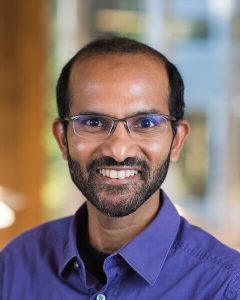Can we produce our way out of food system problems?

Professor, IRES
Bio:
Navin Ramankutty is Professor and Canada Research Chair in Global Environmental Change and Food Security at the Liu Institute for Global Issues and the Institute for Resources, Environment, and Sustainability at the University of British Columbia. His research program aims to understand how humans use and modify the Earth’s land surface for agriculture and its implications for the global environment. Using global Earth observations and numerical ecosystem models, his research aims to find solutions to the problem of feeding humanity with minimal global environmental footprint. He contributed to the Millennium Ecosystem Assessment report and to the Fourth Assessment Report of the Intergovernmental Panel on Climate Change. He was an editor of the journal Global Food Security and Global Ecology and Biogeography, and is an Associate Editor of Environmental Research Letters. He is a Leopold Leadership Fellow.
Website: https://ires2015.sites.olt.ubc.ca/person/navin-ramankutty/
Google Scholar: https://scholar.google.ca/citations?user=POHYXREAAAAJ&hl=en
Abstract:
The global food system is one of the biggest drivers of global environmental degradation. This will only worsen if increasing population and consumption generates increased production in the future. Solutions to this challenge often focus on increasing production through ‘sustainable intensification’, and commonly include closing yield gaps, genetic engineering, or expanding organic and/or urban agriculture. However, an assessment of existing studies suggest that such “hard path” solutions, from the supply side, will be insufficient to meet our food and environmental goals of the future. On the contrary, “soft path” solutions, such as reducing waste and shifting diets, are needed to deal with the magnitude of the problem. Soft path solutions, focused on improving efficiencies and reducing demand, have huge leverage, such that even small changes can have large impacts. The open question is how we can achieve such shifts.